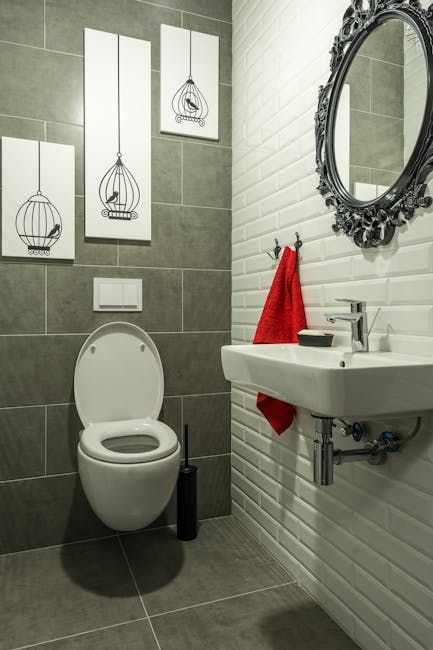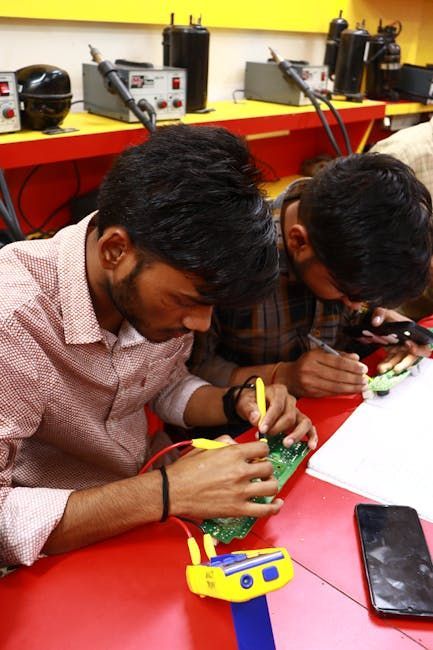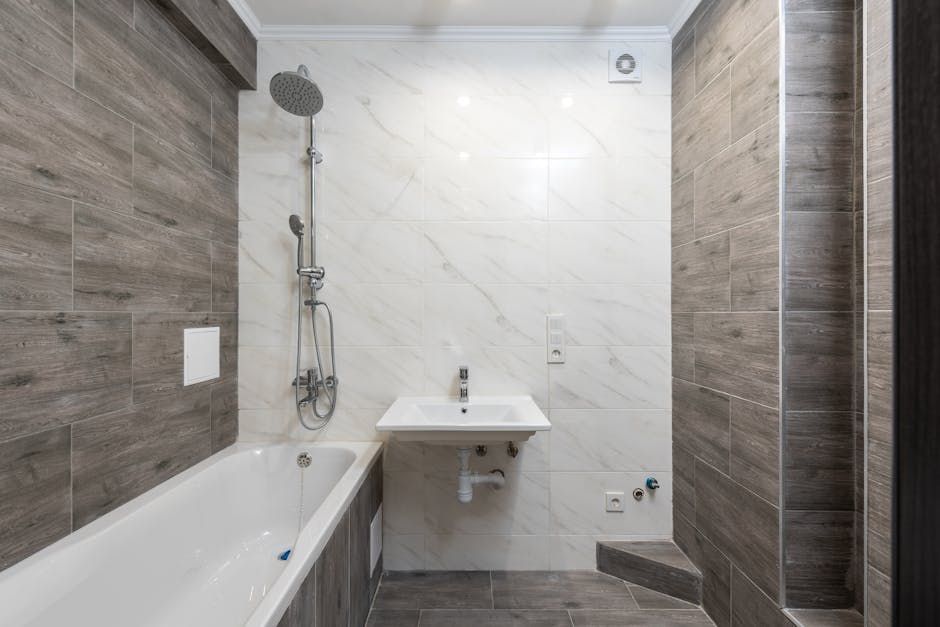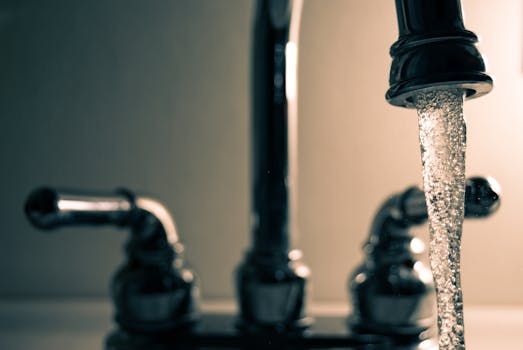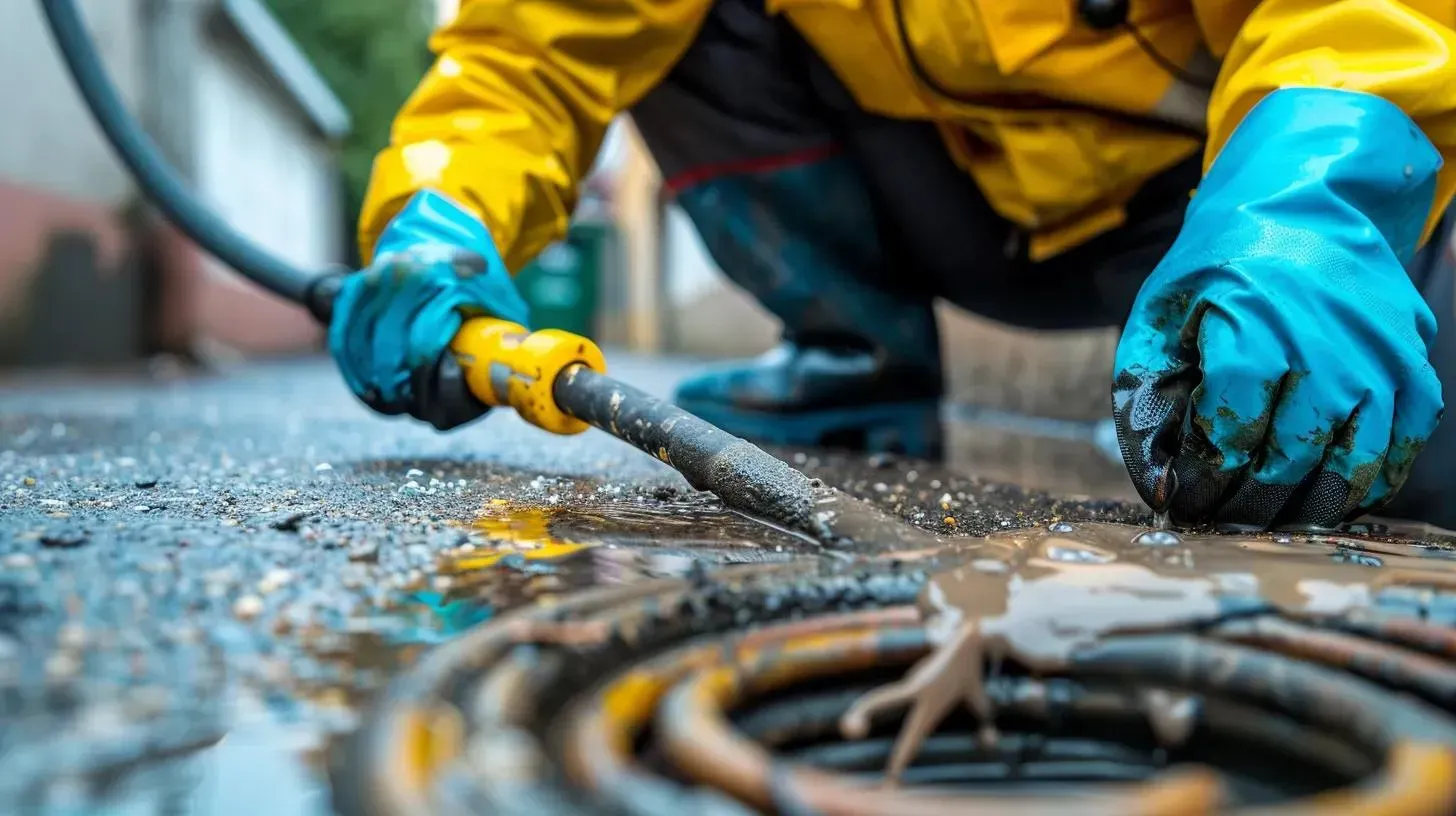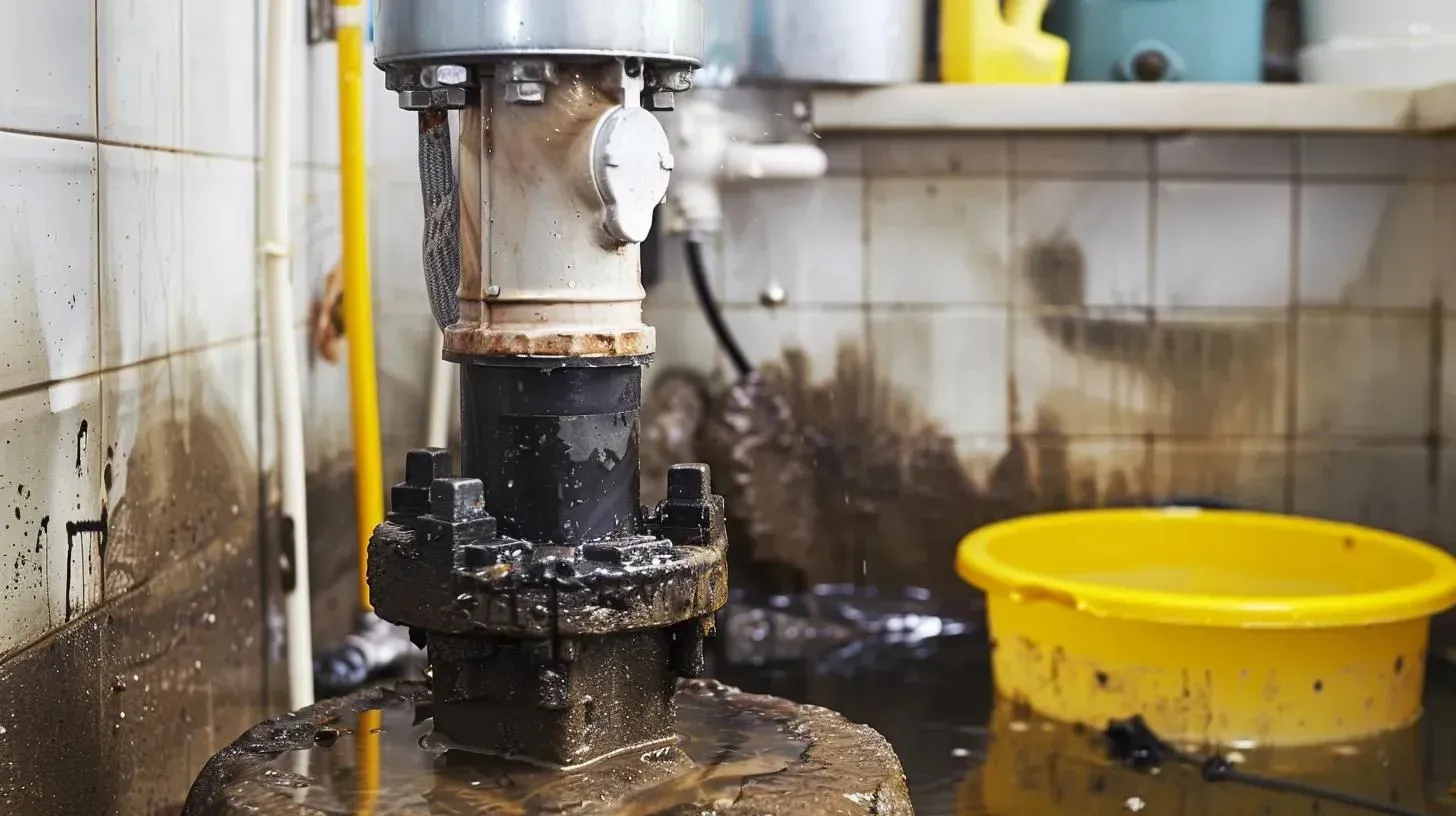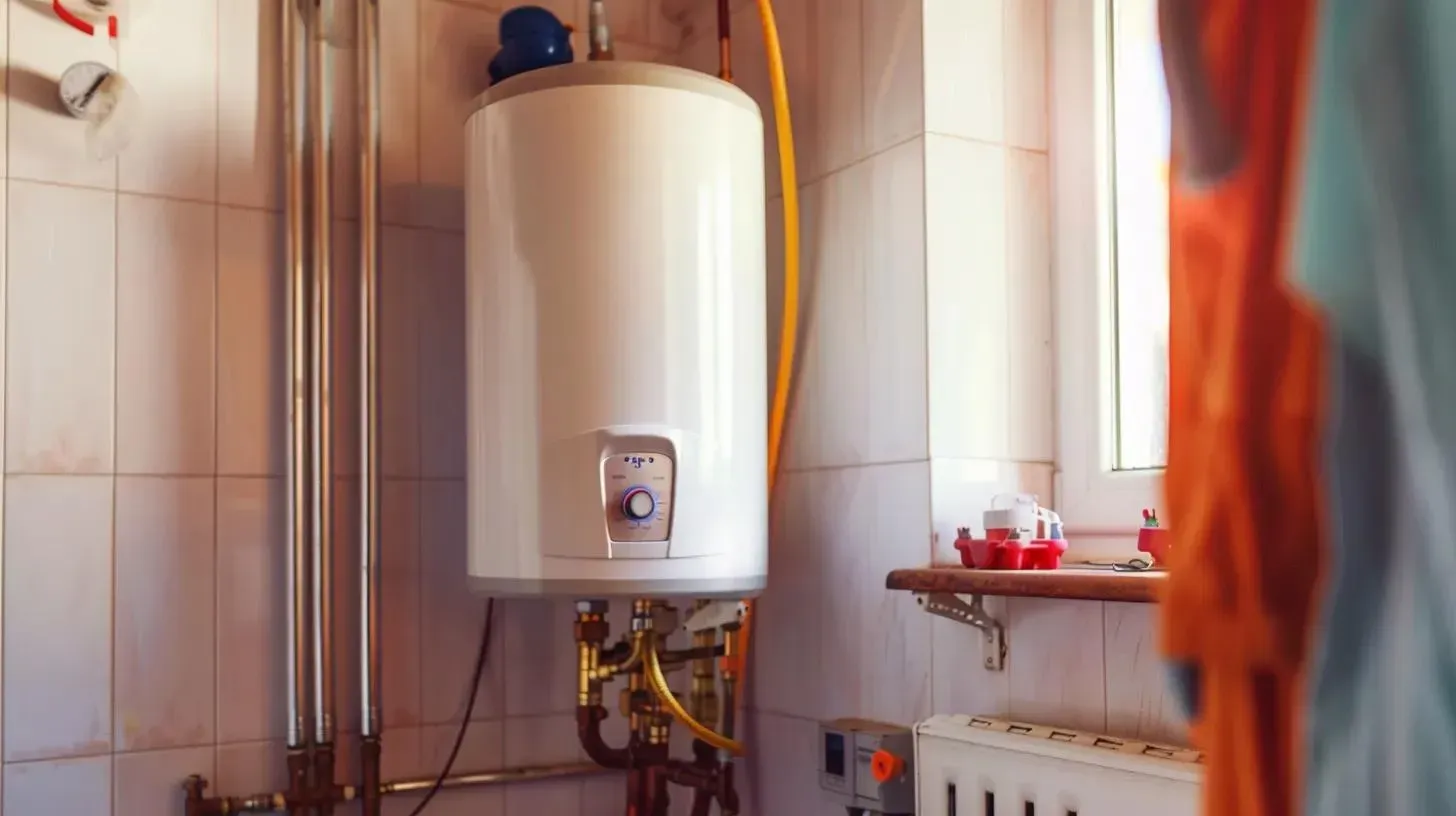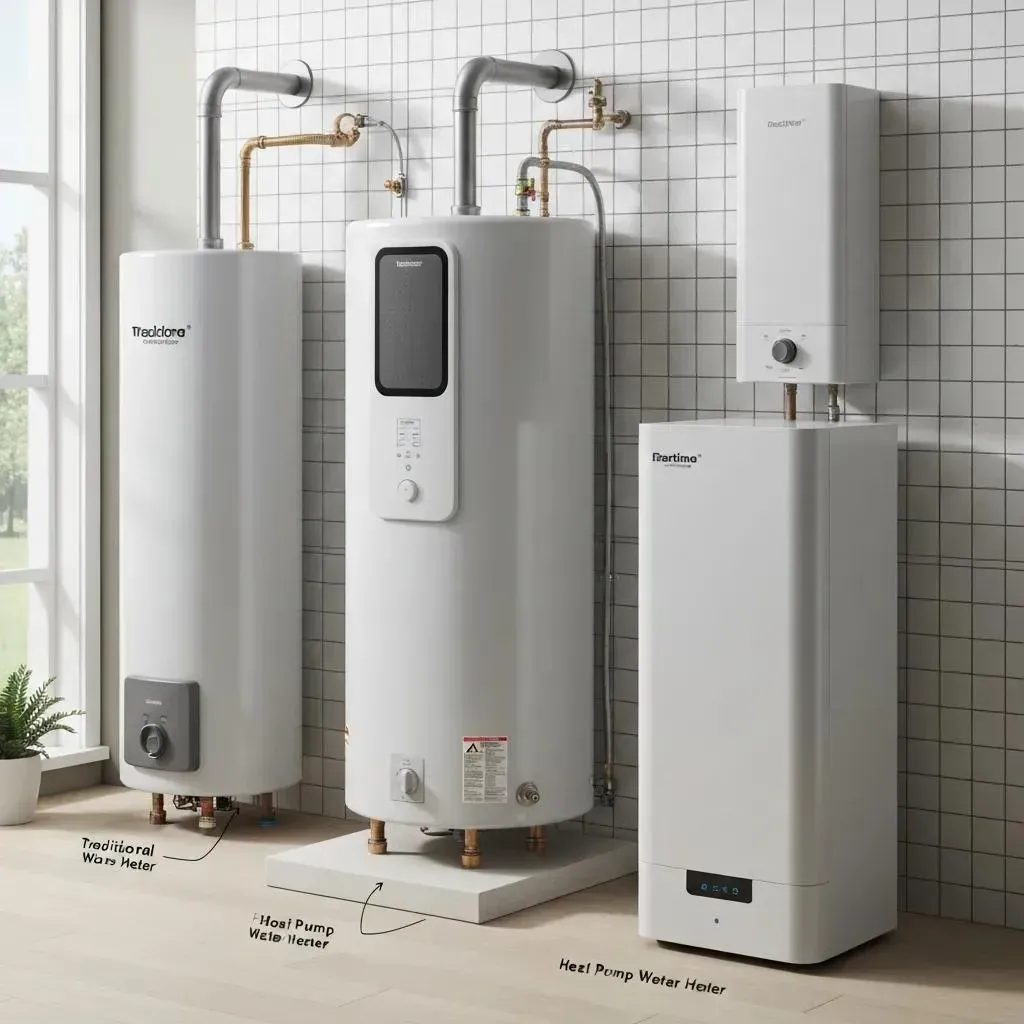Sump Pump Replacement vs. Repair: Making the Smart Choice for Your Denver Home
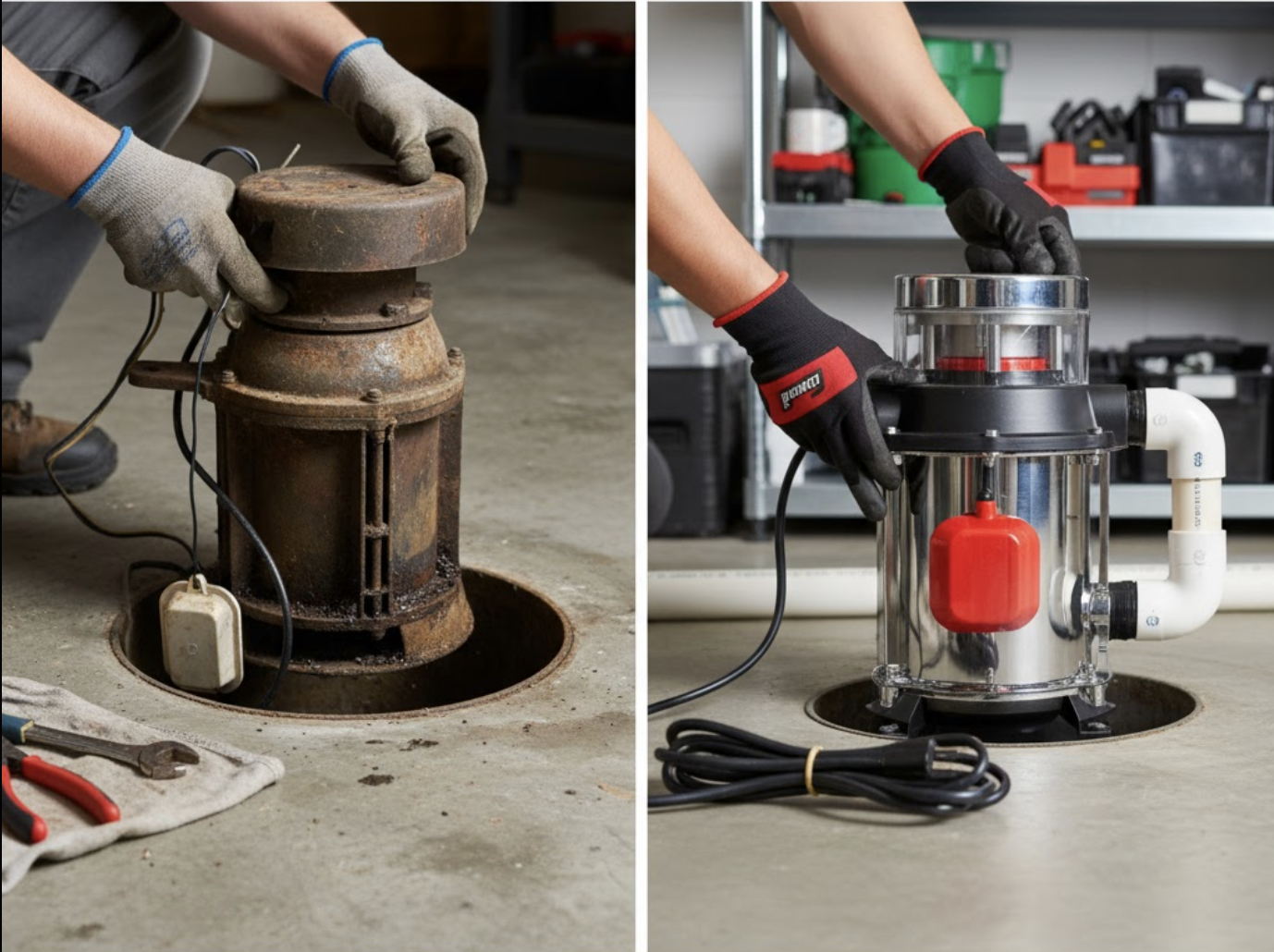
A sump pump on the fritz can mean thousands in water damage for Denver homeowners. That’s why knowing whether to fix it or replace it is a big deal. This guide will walk you through what a sump pump is and how it works, how to spot trouble signs, the pros and cons of repair versus replacement, local Denver costs, the risks of DIY versus calling in the pros, and how to keep your pump running strong for years. Follow this plan to protect your basement and make the best decision for your home.
What Exactly Is a Sump Pump and Why Do You Need One?
A
sump pump
is your basement’s best friend when it comes to water. It’s a pump tucked away in a sump basin in your basement or crawl space. When water levels get too high, it kicks on automatically, pushing the water out through a pipe to keep your home dry and safe from flooding and structural damage. By handling excess water, it protects your foundation, stops mold before it starts, and keeps your indoor air fresh. Understanding how it works is the first step to catching problems early and ensuring your basement stays protected.
What Are the Main Kinds of Sump Pumps?
When it comes to sump pumps, homeowners usually choose between two main types: submersible and pedestal.
- Submersible sump pumps are designed to sit right inside the sump basin, making them quieter and often more powerful.
- Pedestal sump pumps keep the motor up above the basin, which can make them easier to access for maintenance and a bit less expensive upfront.
Sump Pump Types Explained
There are two primary sump pump designs: submersible and pedestal. Submersible pumps are housed within the sump basin, offering quieter operation, while pedestal pumps feature a motor positioned above the basin, simplifying maintenance.Knowing the differences between submersible and pedestal sump pumps is key for homeowners when they're considering repair or replacement options.
While both types aim to do the same job, they differ in how they’re installed, how much noise they make, and how long they typically last. This knowledge will help you look closer at the parts and how they function.
How Does a Sump Pump Keep Your Basement Dry?
A sump pump works like a guardian for your basement. It uses a float switch to detect when water levels are rising. Once triggered, the pump’s motor activates, drawing water through an intake screen and sending it out through a discharge line. A crucial check valve prevents water from flowing back into the pit once the pump shuts off. This automatic system keeps moisture under control and significantly lowers the risk of water getting into your home, saving you from damage and costly repairs.
Understanding this process helps us pinpoint where things can go wrong, so let’s dive into the essential parts next.
What Are the Key Parts of a Sump Pump You Should Know?
Here’s a quick rundown of the main sump pump parts, what they do, and why they’re so important for keeping your basement flood-free.
| Component | What It Does | Why It Matters |
|---|---|---|
| Float Switch | Senses when water levels are rising | Tells the pump when to turn on |
| Check Valve | Stops water from flowing back into the basin | Keeps the basin empty between pump cycles |
| Discharge Pipe | Carries water away from the pump to an outside drain | Directs moisture safely away from your home's foundation |
| Intake Screen | Filters out debris before water enters the pump | Protects the pump's motor and prevents clogs |
Sump Pump Components You Need to Know
The critical parts of a sump pump include the float switch, check valve, discharge pipe, and intake screen. Each piece plays a vital role in ensuring the pump operates correctly.Familiarizing yourself with these components can help you identify potential issues and understand when a repair or replacement might be necessary. All these parts work together to provide reliable protection against flooding. Knowing them helps you recognize when a small fix might do the trick or when it’s time for a whole new pump.
What Are the Signs Your Sump Pump Is Acting Up?
Catching the early signs of a sump pump problem can save you from a flooded basement and expensive water damage. Pay attention to any strange noises, how often the pump cycles on and off, and if it fails to start when the water level is high. Recognizing these symptoms is the first step in figuring out if a simple repair will do the job or if a replacement is the smarter long-term move.
How Can You Tell If Your Sump Pump Is Failing?
Homeowners often notice their sump pump is failing because of:
- Odd grinding or rattling sounds while it’s running
- The pump turning on and off too frequently, or running constantly, which can happen if the float switch gets stuck
- The pump not turning on at all, even when there’s a lot of water in the pit
Warning Signs of Sump Pump Failure
Keep an eye out for unusual noises, frequent cycling, failure to start, and visible rust on your sump pump. These are clear indicators that it’s time for a repair or replacement.Spotting these warning signs early is crucial for taking action quickly and preventing a basement flood.
These warning signs are your cue to act fast. Getting professional help before a major failure can prevent a messy flood situation.
When Is a Sump Pump Repair Usually Enough?
If you’re dealing with minor issues like a float switch that’s stuck, a clogged intake screen, or a check valve that’s not working right, a repair is often all that’s needed. Fixing these specific problems can get your pump working properly again for much less than a new one and can extend its life.
Taking care of these smaller issues can give you peace of mind, but it’s also important to know when replacement becomes the necessary step to avoid ongoing problems.
What Red Flags Mean It’s Time for a New Sump Pump?
You should seriously consider replacing your sump pump if you notice:
- It’s older than 7–10 years, which is its typical lifespan
- It’s been breaking down frequently, even after multiple repairs
- The motor has completely failed or the bearings are seized
- The pump’s housing is corroded or it’s developing persistent leaks
These serious indicators suggest that investing in a new pump will give you better reliability, improved efficiency, and the peace of mind that comes with a new warranty.
Recognizing these critical signs helps you weigh the cost of repairs against the long-term value and dependability of a new unit.
How Do You Choose Between Repairing or Replacing Your Sump Pump?
Deciding whether to repair or replace your sump pump comes down to a few key factors: cost, how reliable it is, how much life it has left, and what kind of warranty it has. Looking at all these points together will help you p out which option offers the best protection for your Denver home and makes the most financial sense.
Sump Pump Repair vs. Replacement: What’s the Best Move?
The choice between repairing or replacing a sump pump hinges on factors like cost, its remaining lifespan, and warranty coverage. While repairs might be cheaper initially, a replacement often provides greater long-term reliability.This information offers a helpful guide for homeowners to make a well-informed decision based on various important factors.
What Factors Should Guide Your Repair or Replacement Decision?
Keep these important criteria in mind when you’re deciding:
- The initial cost versus the promise of long-term reliability
- How much useful life the pump likely has left, based on its age
- The details of any warranty coverage or service guarantees
- How long you’ll be without a working pump during the service
- The energy efficiency and performance ratings of newer models
Balancing the immediate expense with the future peace of mind you’ll gain ensures your choice will keep your basement protected without interruption.
How Does a Sump Pump’s Lifespan Influence Your Choice?
Since most sump pumps are built to last about 7–10 years, an older pump that’s nearing the end of its service life often makes replacement the more sensible option. Opting for a new, energy-efficient model at this stage ensures dependable flood prevention and helps you avoid repeated service calls.
Understanding Sump Pump Lifespan
Sump pumps typically last between 7 and 10 years, though this can vary depending on how much they’re used, how well they’re maintained, and their overall quality. Regular maintenance and professional installation can help extend a pump’s lifespan.This source provides valuable insight into the typical lifespan of a sump pump, which is a critical element to consider when deciding between repair and replacement.
Understanding the implications of your pump’s age will guide you toward the most cost-effective and reliable solution for your home.
What Are the Upsides and Downsides of Repair vs. Replacement?
Here’s a straightforward look at the advantages and disadvantages of fixing your current pump versus installing a new one.
| Option | Biggest Advantage | Main Disadvantage |
|---|---|---|
| Repair | Lower immediate cost | May need frequent service calls |
| Replacement | New warranty, better efficiency | Higher initial investment |
How Can Repairing Your Pump Extend Its Life?
When you repair specific parts, like a float switch or a check valve, you restore the pump’s ability to function correctly. This can add several more years of reliable service. It’s a cost-effective way to keep your flood protection working without the significant expense of a brand-new unit.
How Does a New Pump Boost Long-Term Reliability?
Installing a new sump pump means you get the latest motor technology, often a higher pumping capacity, and the full backing of a manufacturer’s warranty. This upgrade not only improves efficiency but also significantly reduces the chance of unexpected failures, especially during heavy rain.
What Are the Costs for Sump Pump Repair and Replacement in the Denver Area?
Knowing the typical price ranges in your area helps Denver homeowners plan and budget for sump pump services. Getting clear, upfront quotes ensures you understand the costs involved before any work begins.
What’s the Average Price to Repair a Sump Pump?
In Denver, most sump pump repairs fall between $150 and $350. This cost depends on the specific parts needed and the labor involved for things like adjusting a float switch, replacing a check valve, or fixing the motor. We believe in upfront pricing and clear quotes to help you make informed decisions.
Having an idea of these typical expenses allows you to better compare the value of a repair against the benefits of a replacement.
How Much Does It Cost to Replace a Sump Pump?
Replacing a sump pump, including professional installation, typically costs between $800 and $1,500 in the Denver Metro Area. This price usually covers the new pump, the pit cover, discharge piping, and all labor. If you opt for a higher-capacity model or one with a battery backup, the price may be higher.
Sump Pump Costs in Denver, CO
In Denver, you can expect sump pump repairs to cost roughly $150 to $350. For a full replacement, including installation, the price typically ranges from $800 to $1,500.This cost information is valuable for Denver homeowners when they are budgeting for necessary sump pump services.
Understanding these investment ranges can help you plan for a robust and long-lasting upgrade to your home’s flood protection system.
How Do Upfront Pricing and Clear Quotes Help You?
Getting estimates that are clear and don’t have hidden surprises means you can budget accurately and avoid unexpected fees that can erode trust. When you partner with Accountable Home Plumbing, you get honest pricing, expert service, and 24/7 support, especially when the risk of flooding is at its highest.
Reliable quotes reduce stress and make the decision-making process smoother, empowering you to protect your property with confidence.
Should You Tackle Sump Pump Repair Yourself or Call a Pro?
Working on a sump pump involves dealing with electrical wiring, plumbing connections, and precise adjustments. While a DIY approach might seem like a way to save money, hiring professional plumbing services ensures everything is done safely, meets building codes, and will perform reliably for the long haul.
What Are the Risks of Trying to Fix a Sump Pump Yourself?
If you attempt a DIY repair, you could end up with improper wiring, voided warranties, water leaks, or even dangerous electrical hazards. Mistakes in setting the discharge line slope or installing the check valve could lead to basement flooding instead of preventing it.
These potential risks highlight the importance of specialized training and professional tools.
Why Choose Expert Plumbing Services for Your Sump Pump Needs?
Our certified plumbers bring a wealth of knowledge about different sump pump brands, local building codes, and the best installation techniques. Their expert work guarantees correct wiring, secure connections, and thorough testing, all of which minimize the chances of future problems.
Trusting in professional service means you get dependable flood protection and valuable peace of mind.
How Does Accountable Home Plumbing Handle Urgent Sump Pump Issues?
Accountable Home Plumbing offers 24/7 emergency service, ensuring a licensed technician can arrive quickly to diagnose and fix any sump pump failures. With our upfront pricing and expert workmanship, we’ll help keep your basement dry, even during sudden, heavy downpours.
Our rapid, local support works to keep water out and protect your home, no matter the time of day or night.
How Can Regular Maintenance Keep Your Sump Pump Working Longer?
Consistent maintenance not only improves your pump’s performance and reduces the likelihood of breakdowns but also helps delay the need for a costly replacement. By following simple upkeep routines and scheduling professional check-ups, you can ensure your flood protection system works reliably year after year.
What Basic Maintenance Can Homeowners Do?
Here are a few simple tasks you can handle yourself:
- Clear out any debris or sediment that has accumulated in the sump basin
- Test the float switch to make sure it moves freely and without obstruction
- Check and tighten any connections on the discharge piping
- Confirm that the check valve is operating smoothly and without resistance
These regular checks help ensure your pump operates without interruption and reduce wear and tear on its vital parts.
How Does Regular Maintenance Prevent Costly Repairs or Early Replacement?
By keeping things clean and testing regularly, you can prevent clogs, motor strain, and premature wear on components. This means small issues are less likely to turn into major pump failures. This proactive approach helps extend your pump’s lifespan and ensures it performs reliably when you need it most, especially during heavy rain.
Consistent upkeep maintains your flood protection and lowers your overall service expenses over time.
When Should You Schedule Professional Sump Pump Maintenance?
It’s a good idea to schedule a thorough inspection at least once a year. The best times are typically before the spring and fall storm seasons. Professional service includes checking the motor’s performance, ensuring electrical safety, and lubricating components to guarantee your pump is in peak condition and ready to go.
An annual tune-up gives you the confidence that your sump pump is ready to protect your basement from flooding.
What Are Common Questions About Sump Pump Repair vs. Replacement?
Homeowners often wonder how to tell if a repair is sufficient or if replacement is needed, how to compare the cost-effectiveness of each option, and what to do in an emergency. Answering these questions can help clarify your decision-making process and empower you to act quickly when needed.
How Do I Know If My Sump Pump Needs Repair or Replacement?
Consider the age of your pump, how often it breaks down, and how serious the current issue is. Minor problems with the float switch or valves might be fixable with a repair, but if the motor has failed or the pump is over 10 years old, replacement is usually the better choice for long-term reliability.
Is It Cheaper to Repair or Replace a Sump Pump?
Repairs typically have a lower upfront cost. However, if your pump keeps breaking down or is nearing the end of its lifespan, replacement often becomes more cost-effective in the long run. This is because it eliminates the need for repeated service calls and comes with a new warranty.
How Long Do Sump Pumps Usually Last?
Under normal operating conditions and with proper maintenance, most sump pumps can be expected to work reliably for 7 to 10 years. Heavy usage or a lack of upkeep can shorten this lifespan, while high-quality models and regular professional care may extend it.
Can All Sump Pump Problems Be Fixed with a Repair?
Simple issues, such as a stuck float switch, a clogged intake, or a faulty check valve, can usually be repaired. However, significant problems like major motor failure, extensive corrosion, or damage to the pump’s housing often mean that a full replacement is necessary.
What Should I Do If My Sump Pump Fails During an Emergency?
If your sump pump stops working during a storm, the first step is to turn off the power to prevent further damage. Then, clear any debris from the sump basin and call a professional plumber immediately. Emergency service can restore your flood protection quickly, minimizing the risk of water damage to your home.
Having a reliable backup plan and knowing you can get rapid professional help are key to safeguarding your basement during critical moments.
Protecting your home from water damage starts with making the right choice about your sump pump. By understanding the different types, components, warning signs, and local costs, you can confidently decide between repair or replacement based on your pump’s age, your budget, and your need for reliability. Regular maintenance and professional support are also crucial for ensuring top-notch flood protection. For expert advice, upfront pricing, and 24/7 emergency service you can count on, trust Accountable Home Plumbing to keep your basement dry and secure.

